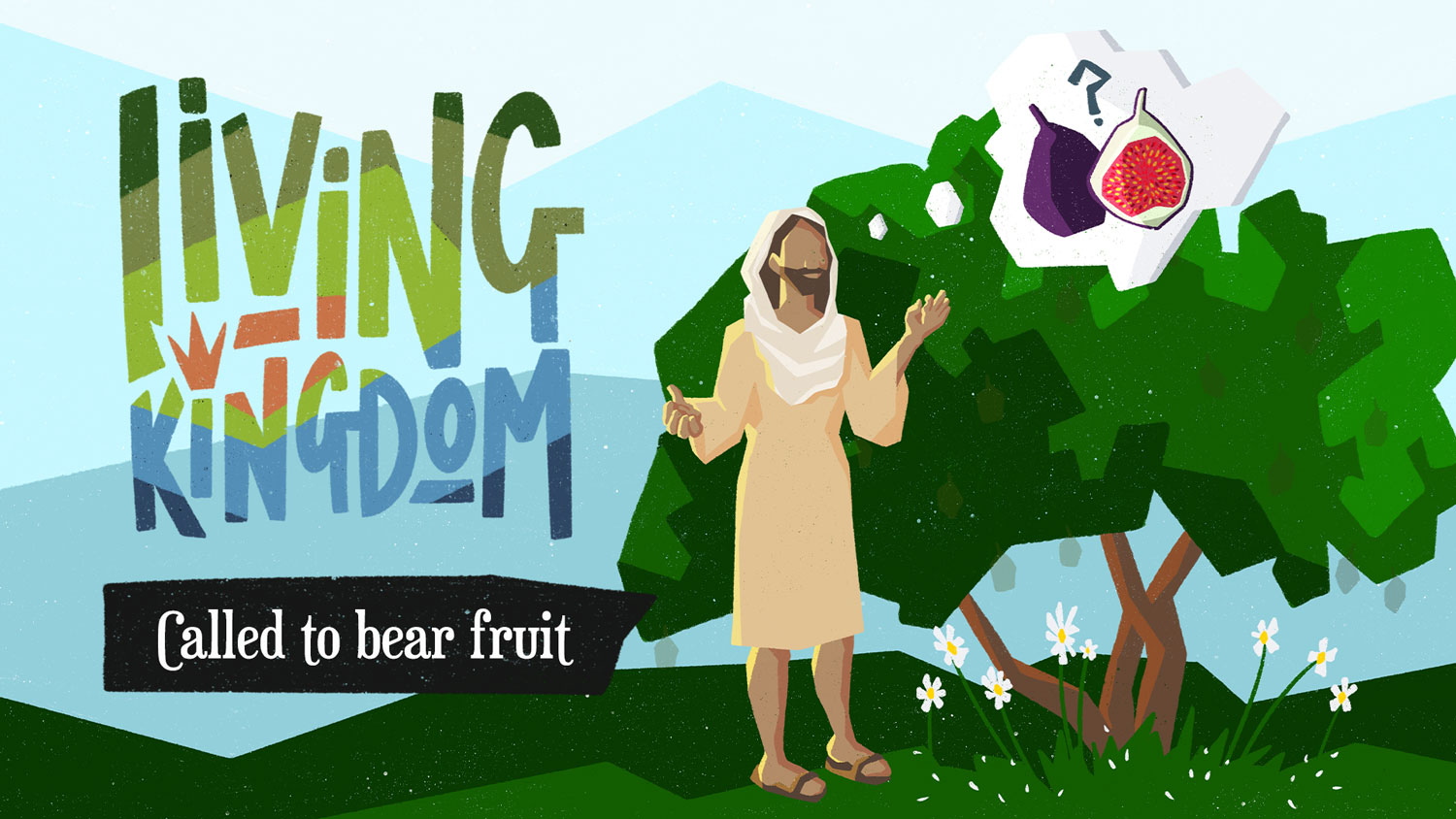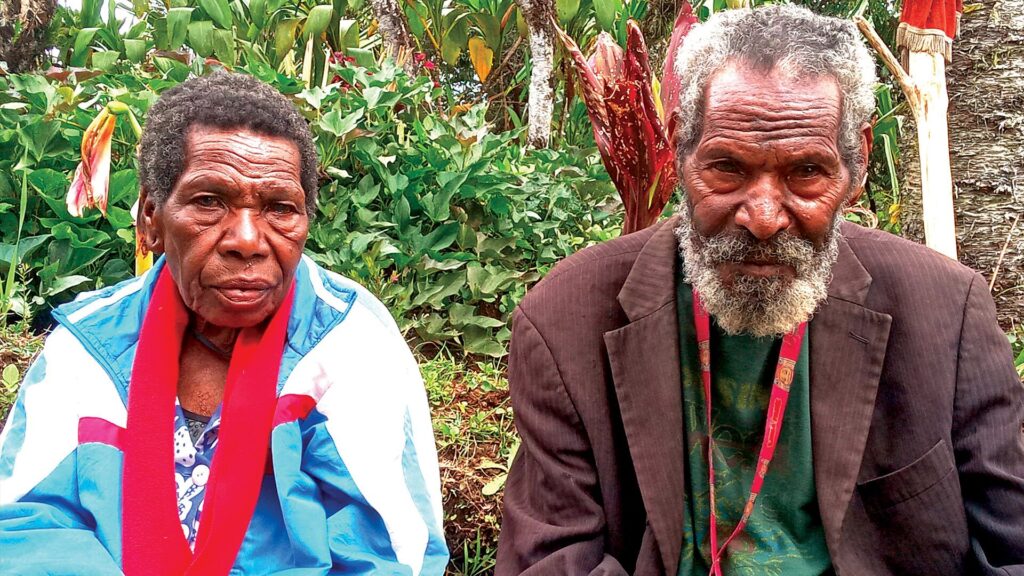The unfruitful figtree
“But he answered and said to him, “Sir, let it alone this year also, until I dig around it and fertilise it. And if it bears fruit, well. But if not, after that you can cut it down” (Luke 13:8,9).
Have you ever had a conversation where you walked away thinking What on earth did I just say? It was a beautiful evening beside Lake Macquarie in New South Wales. We had just been on a dinner date in the township of Toronto and my wife (who at the time was not quite my girlfriend) and I decided to take a stroll by the water’s edge. As we laughed and chatted, I think it’s fair to say I was a little mesmerised. Smart, cute smile, kind nature and her eyes—they were arresting!
I wanted to tell her they were beautiful.
I told her they were “so blue” instead.
I was right. They were, and still are, blue, but not quite the word selection I was going for. I walked away thinking I can’t believe I just said that?
I have a small feeling that I’m not the only one who has done something like this. In fact, I’d be willing to hazard a guess that, in a brain fry moment, many of us have mixed up our words at one time or another. Not Jesus though.
As we move towards the parable under examination, notice how Jesus addressed the Pharisees in Luke 11:44: “For you are like hidden graves in a field. People walk over them without knowing the corruption they are stepping on” (NLT).
No mixed words there—probably not the best way to make friends, but that wasn’t Jesus’ intent. His purpose was to reveal heaven to earth. It was to bring light, life and hope to a lost planet. And in order to do that He had to shoot straight sometimes. From Luke 11 to 13 Jesus addresses the people in Israel, the religious leaders, His own disciples and also the crowd, and He is indeed straight with them. Here’s why.
Israel, who were to be a “kingdom of priests” and God’s own “holy nation” (Exodus 19:6), had notably lost their way. Instead of revealing the goodness of God, the custodians of the day had led the people into all sorts of grave misconceptions about the character of God (see Luke 11:37-54). The problem: when you misunderstand who God is, you won’t live how God intended—and that’s no small thing.
Over the space of two chapters, Luke 11 and 12, we see Jesus trying to recalibrate Israel’s understanding of God with the intent of calling them to live the life that He desires. Chapter 13, then, begins with a call for all to repentance (see verses 1-5).
The context, outlined above, shows clearly that the “Unfruitful Fig Tree” represents Israel: the religious institution, the leadership that had left them spiritually barren, and in turn the people had been led astray.1
A brief read of the text makes this idea very obvious:
“And He began telling this parable: ‘A man had a fig tree which had been planted in his vineyard; and he came looking for fruit on it and did not find any. And he said to the vineyard keeper, ‘Behold, for three years I have come looking for fruit on this fig tree without finding any’” (Luke 13:6,7, NASB).
Israel was in a spiritually destitute state, and had been for some time. They were an unfruitful people represented by this impoverished tree.
What’s most striking, however, is how the vineyard keeper deals with this tree: “When the owner of the vineyard calls for the tree to be done away with ‘Cut it down! Why does it even use up the ground?’, the vineyard keeper responds and says ‘Let it alone, sir, for this year too, until I dig around it and put in fertiliser; and if it bears fruit next year, fine; but if not, cut it down’” (Luke 13:7-9, NASB).
Despite the fact Israel had lived unfaithfully to the calling God had put on them, the tender vineyard keeper was willing to give them more time to redress their dire situation. This is not only a key insight into the salvific theme that runs through the third Gospel, but it’s a splendid picture of a merciful God.2
We haven’t discovered the best part though. The very next story we encounter in Luke is of Jesus healing a woman who had been sick for 18 years—on the Sabbath, much to the distaste of the Pharisees (Luke 13:10-17). Luke captures the Saviour’s mercy beautifully: “this woman, a daughter of Abraham as she is, whom Satan has bound for eighteen long years, should she not have been released from this bond on the Sabbath day?” (Luke 13:16, NASB).3
From Luke 11-13 Jesus had been teaching Israel, the leaders, the disciples and the commoners about how God wants them to live—not unfruitful, but fruitful. Now He shows them. With Luke 11-13 in mind, if I was to put words to Jesus’ actions here, they would be something like this: “God is not interested in your ‘supposed’ religious piety and rule keeping, it’s doing zero good! What He’s really interested in is bringing healing and restoration to those who need it most—get with the program people.”
God is truly good! He longs to release us from the bonds that Satan has plagued us with for years on end. The big question for us, one that is particularly clear in the parable of the unfruitful fig tree, is simple: Are we with the program?
Here are some lessons, from the passages we have just considered, that help us to know whether we are or not.
1. Keep the main thing the main thing! As Adventists, we have a terrible habit of putting things of little significance on the centre stage. When we live like this we aren’t all that different to Israel. We have an incredible God who is bursting with love, patience and mercy, who we are to declare to the world, but instead we get caught up on issues that have very little eternal significance. That’s the exact problem the Pharisees had; they were blind to what was important.4
With this in mind, I have to ask—what am I blind to? And what is making me unfruitful? Selfishness definitely catches me out! Self-righteousness. I see glimpses of this at times. Spiritual apathy—I’ve had my moments (and maybe more than I know). What are you blind to? What’s making you unfruitful?
2. Repentance is huge (Luke 13:1-5)! If we have been living a life that has lost focus, whether that has been policing potluck lunch, cherishing a secret sin or loving church politics more than the mission of Jesus, repentance is the next step. In fact, if your life is not completely about letting the light God has put in you shine among men, repentance is non-negotiable (Matthew 5:16).
As I connect with God each day, I often find myself asking for forgiveness for things that are out of place in my life. A lack of patience, thoughts that shouldn’t be in my mind, a lack of focus on what’s good (so many distractions!). While it’s fitting that I repent of my shortfalls, I should also repent for the lack of godly action I take. As The Messiah notes, “Every moment is a treasure to be spent making someone’s life better and heaven more real”(p68). If we’re not doing this, it’s time for a fresh start!
3. Actions are louder than words! Jesus made that painstakingly obvious as He healed the woman who was held in Satan’s bondage for 18 years—smack bang in the centre of Israel’s most holy day. We cannot sit back and talk of a just, merciful, compassionate and loving God, if we don’t live as just, merciful, compassionate and loving people.
That doesn’t work in 2021. In fact, many people in our time have very little regard for institutions—especially churches.
This means that the way I live on a day-to-day basis has never been more crucial: the way I carry myself at work; the integrity I have when making decisions (especially when I think no-one is watching); my ability to listen to the hurts of others and going out of my way to make a difference in people’s lives (yes that takes time and is inconvenient—it’s meant to be).
In terms of declaring God in a secular society, genuine Christian living is our best tool, maybe even our only hope. I am by no means saying there is no room for proclamation. What I am saying, however, is that no-one wants to listen to proclamation from people who do not live what they proclaim (1 Corinthians 13:1-13; Micah 6:8).
In the parable of the unfruitful fig tree, and the surrounding passages, Jesus was clear: Israel was a long way off track. The scary thing for us is that it’s happened before, and it can easily happen again. The last thing we want to be as individuals, and as a Church, is the unfruitful fig tree.
Let’s keep the main thing the main thing (Jesus!), repent of our shortcomings, make that fresh start today, and let our lives, well-lived, be the loudest voice of the everlasting gospel (Revelation 14:6,7).
Simon Gigliotti is the Youth director at Greater Sydney Conference.







